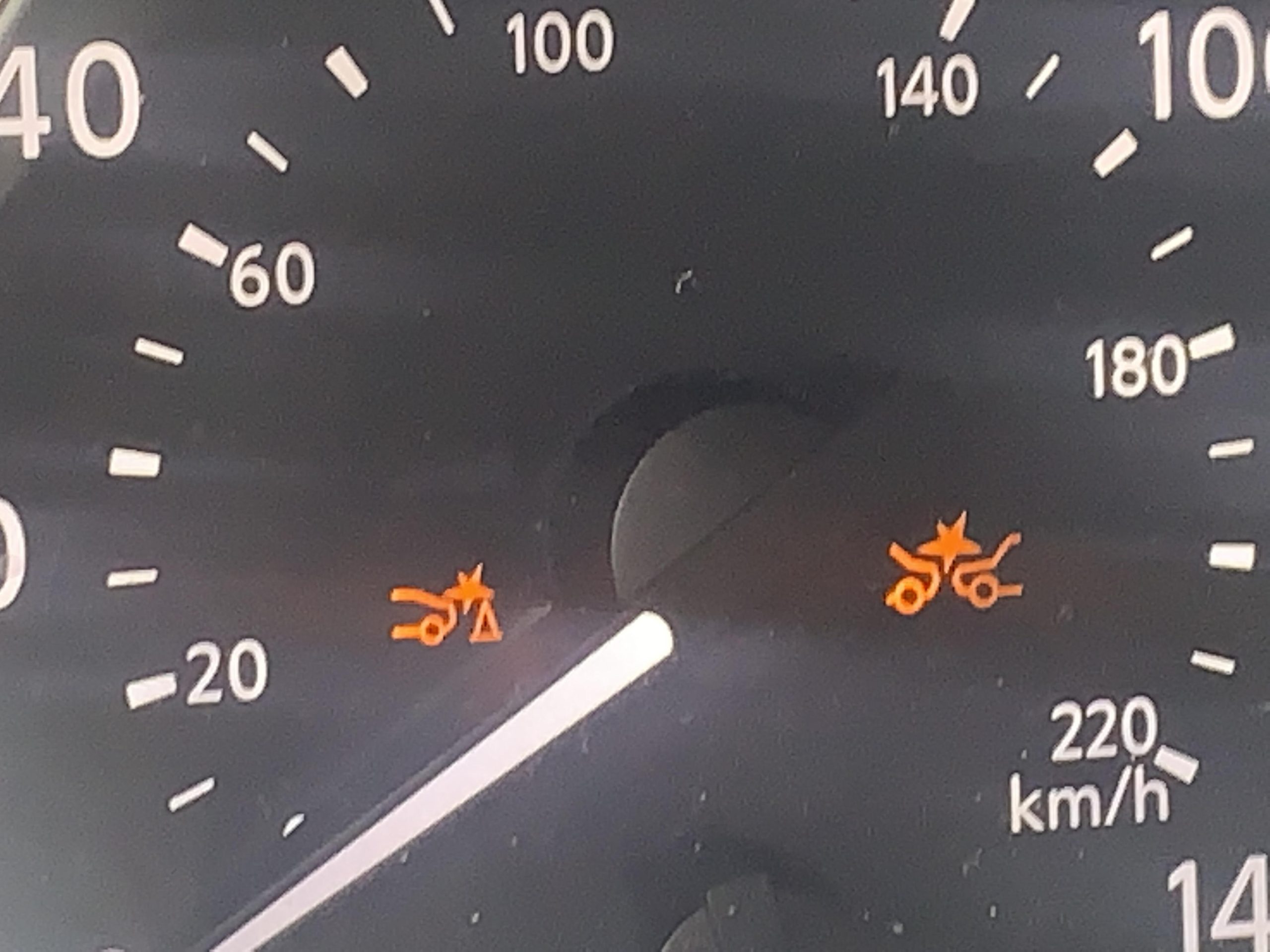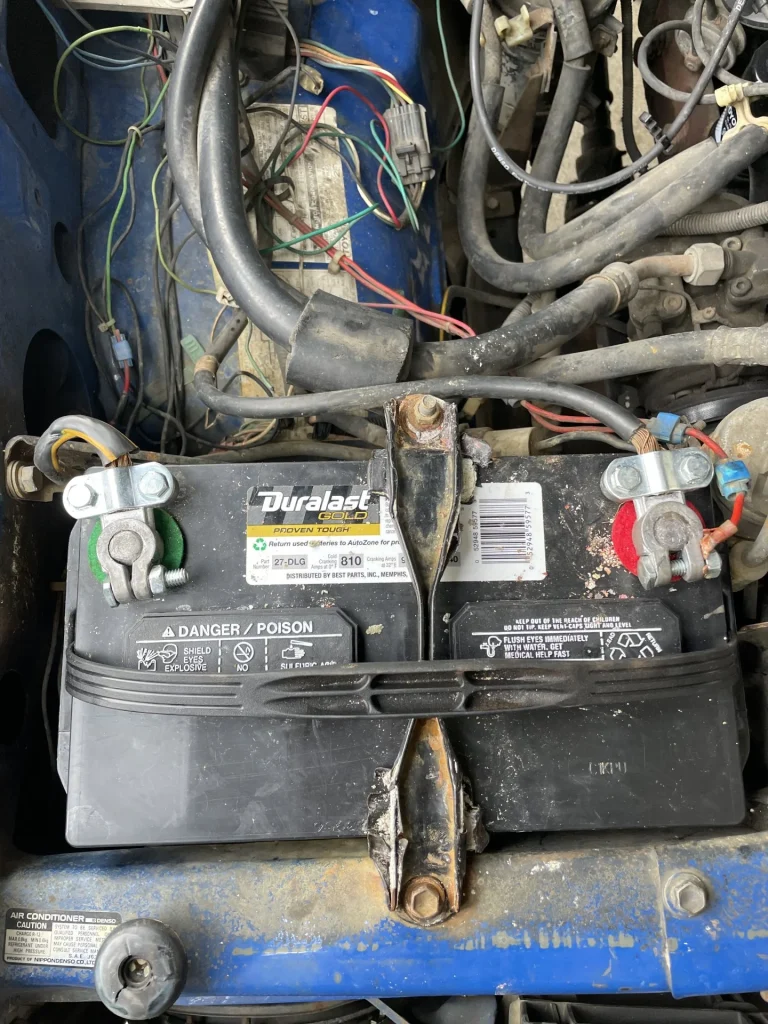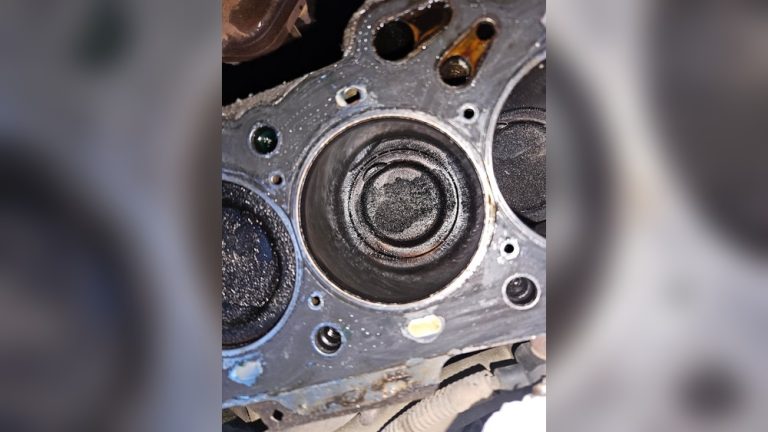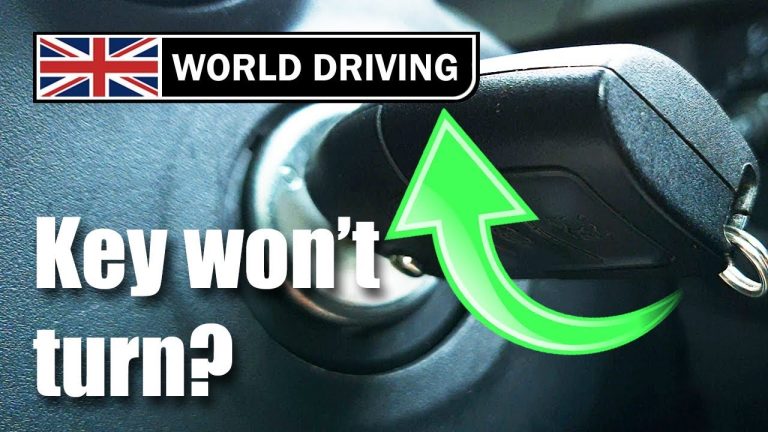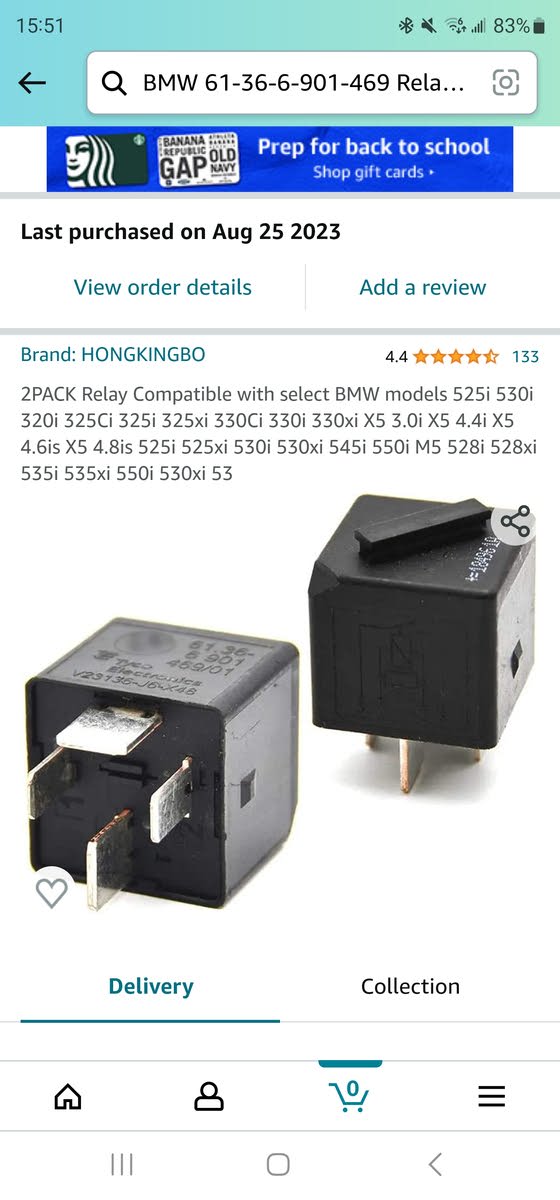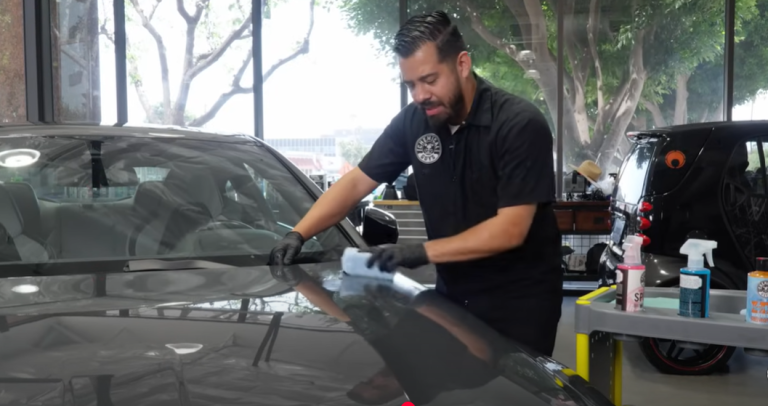Nissan Rogue Dash Warning Lights: Essential Guide Explained
Nissan Rogue dash warning lights alert you to vehicle issues. Common ones include the check engine light, tire pressure warning, battery alert, oil pressure light, and brake system warning. Each light indicates a specific problem and should be addressed promptly to ensure safety and prevent potential vehicle damage.
Is it something minor, or could it be a serious issue? Understanding the dash warning lights in your Nissan Rogue is crucial not only for your peace of mind but also for the safety and longevity of your vehicle. In this guide, we’ll help you decode these lights, providing clear explanations and tips on what actions you should take.
By the end of this article, you’ll feel empowered and informed, ready to handle any warning light with confidence. Dive in to ensure your drives remain smooth and worry-free.

Credit: www.youtube.com
Nissan Rogue Dash Warning Lights
Common Warning Lights
Understanding Nissan Rogue dash warning lights can be crucial. These lights indicate various issues with your vehicle. Some are simple, while others are serious. Recognizing these can help maintain your car’s health. Let’s explore the most common warning lights.
Engine Warning Light
This light looks like an engine. It signals engine problems. It can mean a loose gas cap or a more serious engine issue. Don’t ignore it. It’s wise to have your vehicle checked.
Read more: Nissan Dashboard Symbols And Meanings
Oil Pressure Warning Light
This symbol resembles an oil can. It indicates low oil pressure. Low oil pressure can damage your engine. Check your oil levels immediately. Seek assistance if needed.
Battery Charge Warning Light
This light looks like a battery. It shows battery charging problems. Your battery might not be charging correctly. Check your alternator and battery soon. Ignoring it can lead to a dead battery.
Brake System Warning Light
This symbol resembles an exclamation mark in a circle. It signals a brake issue. It can mean low brake fluid or brake system failure. Check your brakes immediately. Safety is a priority.
Tire Pressure Warning Light
This light looks like a flat tire with an exclamation mark. It indicates low tire pressure. Check your tire pressure soon. Proper tire pressure ensures safety and efficiency.

Credit: www.youtube.com
Understanding Color Codes
Nissan Rogue dash warning lights use color codes to signal vehicle issues. Red indicates urgent problems requiring immediate attention. Yellow or orange suggests caution, while green or blue signals normal operation. Understanding these codes ensures timely maintenance and safe driving.
When driving your Nissan Rogue, dash warning lights are your vehicle’s way of communicating with you. Understanding the color codes of these lights can help you identify the urgency and type of issue your car might be facing. This knowledge is crucial for maintaining your vehicle’s health and ensuring safety on the road.
Read more: Nissan Rogue Won’t Start
Red Warning Lights
Red warning lights demand your immediate attention. These signals often indicate serious issues that need quick action. Imagine driving on a dark road and suddenly seeing a red light flash on your dashboard. Wouldn’t you want to know what it means? It could be something critical like low oil pressure or engine overheating, which can lead to severe damage if ignored.
Yellow Warning Lights
Yellow lights are cautionary. They suggest that something needs to be checked soon, but it’s not an immediate threat. Picture yourself rushing to work and a yellow light pops up. You might be tempted to ignore it, but addressing it promptly can prevent future complications. These lights might indicate issues like low fuel or tire pressure that, while not urgent, are essential for safe driving.
Green And Blue Lights
Green and blue lights are generally informational. They usually notify you that certain systems are active, like cruise control or high beams. Think about the convenience of having cruise control on during long highway trips. A green light will let you know it’s engaged, giving you peace of mind. These lights are not warnings but confirmations that features are working as intended.
Interpreting Mixed Signals
Sometimes, your dashboard might display multiple colors at once. This can be confusing. Have you ever felt overwhelmed when faced with mixed signals? It’s similar to receiving texts from different friends at the same time. Prioritize red lights and then address yellow ones. Understanding this hierarchy can ease the stress of dealing with multiple warnings. Understanding these color codes not only helps in tackling immediate issues but also aids in preventing future ones. Have you ever ignored a warning light only to regret it later? Learning these signals can save you from costly repairs and ensure a safer driving experience. What warning light has puzzled you the most? Share your experiences and let’s decode the mystery together!
Troubleshooting Tips
Have you ever found yourself behind the wheel, cruising smoothly, when suddenly a dash warning light flickers on your Nissan Rogue’s dashboard? It’s a moment of mixed emotions – surprise, concern, and curiosity. But don’t worry; understanding and troubleshooting these warning lights doesn’t require a mechanic’s degree. It’s all about knowing what each light signifies and how to respond effectively. Let’s dive into some practical troubleshooting tips that can save you time and help ensure your vehicle remains in top shape.
Understanding Warning Light Colors
Did you know that the color of the warning lights can give you immediate hints about the urgency of the issue? Red lights usually mean stop immediately and address the problem. Yellow or orange lights suggest caution and should be checked soon. Green or blue lights typically indicate that a system is active, like your high beams.
Check Engine Light
When the check engine light appears, it might seem daunting, but it’s not always a severe issue. Start by ensuring your gas cap is tight; a loose cap can trigger this light. If the light persists, a visit to a professional for a diagnostic test can pinpoint the exact issue.
Low Tire Pressure Warning
This warning is crucial for safety and fuel efficiency. Use a reliable tire pressure gauge to check each tire. Adjust the pressure as needed. Driving with balanced tire pressure not only ensures safety but also improves fuel economy.
Battery Alert
When the battery light illuminates, it’s worth checking the battery connections for corrosion or looseness. Sometimes, a simple cleaning can resolve the issue. If the problem continues, it might be time for a battery replacement or further electrical system checks.
Oil Pressure Warning
Low oil pressure can severely damage your engine. If this light comes on, check the oil level immediately. Add oil if necessary, but if the light persists, it’s wise to seek professional help to avoid costly repairs.
Brake System Alert
Brakes are vital for safety, so this warning should never be ignored. Confirm that your parking brake isn’t engaged. If the light remains, inspect the brake fluid level. Low fluid often indicates a leak, requiring immediate attention.
Handling dash warning lights may seem overwhelming, but it’s all about taking timely and informed actions. Have you experienced any unexpected warning lights recently? Share your story and let’s see if we can figure it out together!
Maintenance And Prevention
Nissan Rogue dash warning lights alert drivers to potential issues, ensuring safer journeys. Regular checks prevent costly repairs and keep the vehicle running smoothly. Addressing these alerts promptly helps maintain optimal performance and longevity.
Maintaining and preventing issues with your Nissan Rogue’s dash warning lights is crucial for a smooth driving experience. These lights act as the vehicle’s communication system, alerting you to potential problems. By understanding their significance and taking proactive steps, you can keep your vehicle running efficiently and safely.
Understanding The Importance Of Dash Warning Lights
Dash warning lights are not just random signals; they’re vital indicators of your car’s health. Ignoring them can lead to costly repairs or even dangerous driving conditions. When a light appears, it’s your vehicle’s way of telling you something needs attention.
Regular Maintenance Checks
Schedule regular maintenance checks to ensure everything is functioning properly. During these checks, ask your mechanic to scan the vehicle’s computer system for any hidden codes. This can help in identifying potential issues before they escalate into serious problems.
Keep Your Vehicle’s Manual Handy
Your vehicle’s manual is a goldmine of information. It provides specific details about each warning light and what it signifies. If a light appears on your dash, consult the manual immediately to understand the urgency and necessary action.
Stay Ahead With Preventive Measures
Simple preventive measures can save you from complex issues. Check your oil, coolant, and brake fluid levels regularly. Keeping these fluids at optimal levels can prevent many warning lights from ever appearing.
Personal Experience: A Lesson Learned
I once ignored a low tire pressure warning light on a long trip, assuming it was a minor issue. This mistake led to a flat tire in the middle of nowhere. That experience taught me the importance of addressing warning lights promptly. It’s a lesson worth sharing to save you from similar inconveniences.
Engage With Your Vehicle
Ask yourself: How well do you really know your car? Spending some time familiarizing yourself with its normal sounds and behaviors can alert you to changes. This proactive approach can help you detect problems early, even before a warning light turns on.
Regular Software Updates
Ensure your vehicle’s software is up to date. Manufacturers often release updates that improve system performance and address known issues. Keeping your car’s software current can enhance its reliability and efficiency. By focusing on maintenance and prevention, you ensure that your Nissan Rogue remains a dependable companion on the road. Be proactive, and let those dash warning lights guide you to a safer, more enjoyable driving experience.
When To Seek Professional Help
Nissan Rogue dash warning lights can signal various issues in your vehicle. Recognizing these signals is essential for maintaining your car’s health. Not all warning lights require immediate action. However, some indicate serious problems needing professional attention. Learn when to seek expert help to avoid further damage or costly repairs.
Understanding The Severity Of Warning Lights
Some lights signal minor issues. Others point to critical problems. Learn the difference. A red warning light often means immediate action is necessary. Yellow or orange lights suggest caution but aren’t urgent. Ignoring these lights can lead to bigger issues later.
Red Lights: Immediate Action Required
Red dash lights indicate severe problems. They often relate to engine or brake issues. If you see a red light, pull over safely. Consult a professional mechanic as soon as possible. Driving with these lights on can risk your safety and damage your car.
Flashing Lights: Don’t Ignore Them
Flashing lights usually mean a serious issue. They often relate to the engine or emissions. A flashing light indicates a problem that could harm your vehicle. It’s crucial to stop driving and seek help immediately.
Persistent Lights: Time To Get Checked
Some lights remain on even after restarting the car. These persistent lights need attention. They might not require urgent action, but don’t ignore them. Schedule a visit to your local mechanic. They can diagnose and fix the issue before it worsens.
Unusual Noises Or Smells
Warning lights sometimes accompany strange sounds or smells. These signs often indicate a serious problem. If you notice any unusual noises or odors, don’t wait. Have a professional inspect your vehicle immediately.
Difficulty Driving
Experiencing trouble while driving can signal a bigger problem. Warning lights may show up as well. If your car feels different or hard to control, seek help. A mechanic can identify and resolve the issue quickly.

Credit: www.downtownnissan.com
Frequently Asked Questions
What Do The Warning Lights On A Nissan Rogue Mean?
Warning lights indicate issues with your vehicle. Some may need urgent attention. Check your manual for specific meanings.
How To Reset The Nissan Rogue Warning Lights?
Resetting usually involves fixing the issue first. Then, disconnect the battery for a few minutes.
Is It Safe To Drive With A Warning Light On?
Driving with a warning light can be risky. It’s best to check the issue immediately.
Why Is My Nissan Rogue’s Check Engine Light On?
The check engine light signals engine issues. Could be minor or serious. Have it diagnosed soon.
How To Fix Nissan Rogue’s Tire Pressure Warning?
Check and adjust tire pressure. If the light stays on, consult a mechanic for further inspection.
Conclusion
Understanding Nissan Rogue dash warning lights keeps you informed. These lights signal important car issues. Regular checks ensure your vehicle stays safe. Pay attention to any new warning lights. Address problems quickly to prevent costly repairs. Safety remains a top priority.
Familiarize yourself with common symbols. This knowledge helps make better decisions on the road. Stay alert and drive with confidence. Your Nissan Rogue can provide a reliable journey. Keep learning about your vehicle’s signals. This boosts your driving experience. Always remember, informed drivers are safer drivers.

